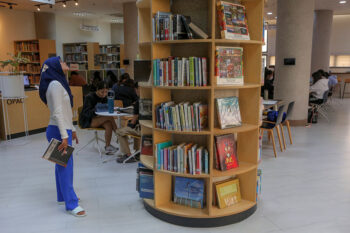
MATALAM, North Cotabato (MindaNews / 8 March)—Last week a group of young professionals in their late ’30s asked me: “What three things will you advise us, Sir?”
I did give them three pieces of advice, because in the first place, those are just the things that crossed my mind after that impromptu question. I thought I should give them more but they should be something well thought out and more profound. And so, I simply told them to wait for more advices that will come out in this column.
But what made them ask for advice from me?
As we were travelling on the road from Arakan (North Cotabato) to Davao City via BuDa (short for Bukidnon-Davao) national highway we were tackling variety of topics like how we made it past school life as all of us were from poor families, situations in the work place, marital issues, and parenting in the new millennium.
Such concerns are particularly interesting for the young adult who aspires to be successful and live a happy life, for what is success if it does not redound to happiness. In view of this, I offer the following advice to these young adults.
- Understand the millennium generation and millennium parenting
Millennium parenting? Yes, and I say millennium parenting because the perspectives of the millennium generation have metamorphosed a lot due to the influence of the fast changing environment amidst the upbringing of the young adult and the confluence of the old and new school of thoughts on parenting.
Parenting has to grow with the times if it is to be relevant and responsible.
The millennium generation, generally speaking, accuses us of being backward and old fashioned—in the way we dress, cultural upbringing, moral orientation, and values appreciation. They silently assert that they are better schooled in academic institutions with higher standards.
I beg to disagree because the records do not show that.
We used to excel in the ASEAN region on science and math Olympiads during the 1960s to early 1980s. For several times we were on top, as in number one. However, in the 2018 Programme for International Student Assessment (PISA), which evaluated the performance of 15-year-olds in reading, mathematics and science, the Philippines took the second lowest spot in science and mathematics, with the Dominican Republic being the only country that ranked lower than the ASEAN countries.
In another assessment made by the UNESCO (United Nations Educational, Scientific, and Cultural Organization), it noted that most Asia-Pacific countries need to work harder to make notable progress in STEM (science, technology, engineering, mathematics) education. “The Philippines, despite numerous attempts to improve its educational outcomes, has instead become an educational laggard, taking the ignominious distinction of getting low rankings in three [successive] different global evaluations that scored students’ performance in science, technology, engineering and mathematics,” the report said.
When I prescribed that millennium parenting should be generally friendly with the child and never to create a culture of fear in the home, our driver retorted by saying, “I have to be different and very strict because my eldest child is a female.” There we are again! We thought, since time immemorial, that there should be two sets of standards, discipline, and methods of parenting between boys and girls.
I always emphasize that only the matter of relationship between parents and the millennium child has evolved but the basis for moral considerations, values formation, and character building has been the same. We draw our moral orientations from our Faith, take our values formation from duly established and generally accepted social norms and build character in terms of making them respectful, truthful, obedient and law-abiding citizens.
The millennium parent should maintain an open line of communication with the child. This is why there is no place for instilling a culture of fear in the home. Only when the child feels comfortable talking to you will he divulge his feelings, plans and problems.
Some parents complain about their children who stay outside and/or hang out with friends most of the time. When the child finds solace and prefers to spend most of his time outside the home, this is a sign that he is looking for something better; an ideal environment that he may be looking for but not present at home.
Our driver went further by saying: “But my daughter talks to me and seem to enjoy my company when we are out in beach resorts or places like that.” Exactly, my point, because you are a different person when you are in those resorts with the members of your family. You want them to enjoy the pleasure of the ambiance, and to do that, you, as a father, tries to adjust so that you will not spoil the party, so to speak. Ergo, if you can bring that ambiance and the instant person that you are like that in the home, your daughter will do the same to you. Promise!
- Set clear goals in life in terms of how you define success
Success may be relative. There are those who equate success with having much money, getting high-paying jobs, while others may dream of being powerful and influential or enjoying high profile status in the society. A few may just opt for a simple and peaceful life enjoying the perks of having three meals a day, going on a vacation or leisure trip once in a while, and having healthy and less stressful life.
More often, success is defined in terms of how much we have achieved our goals in life. This brings us to the notion that one must have clear goals in life, which could be both short term and long term. In fact, one goal achieved after another should be what really makes you happy.
- Understand what truly makes you happy
Some people would simply say that acquiring a college degree is enough to make one happy. Still, others would say that happiness begins from the moment you do something for others. Service to others becomes a happy vocation only when it is done with utmost sincerity and done from the heart. Then, there are those who define happiness by marrying the man or woman of their lives.
Indeed happiness is subjective and can be as varied as there are individual differences. Social scientists and researchers have been working to understand the nature of happiness. They had been trying to discover if there is a universal formula to achieve true happiness. As it appears until today, finding a universal formula has been a work in progress. Measuring and increasing happiness across society is a very old idea that was abandoned for some time in the recent past. Now this is slowly coming back.
Many philosophers and social scientists are of the common view that happiness is a human goal. However with the rise of behaviorism amongst economists and psychologists this led to the skepticism that feelings should also be measured as one of the determinants of happiness. Social scientists were elated that for the first time in human history happiness can be measured in a more scientific manner.
As social research is increasingly inclined to the notion that happiness is a product of subjective well-being, I am not in a position, for now, to recommend specific tasks, actions, or formula to attain happiness.
Here’s some words of caution though: please do not equate happiness with material possession and position. They are very temporary. Once you are there, happiness should be sustained in the long term as much as possible. I cannot imagine a life where you are very happy today, and very sad the next day.
I am sure this group of young adults looks forward to travelling with me again. I, too, look forward to the next topic of interest that we can share.
Sharing is caring.
(MindaViews is the opinion section of MindaNews. Maugan P. Mosaid holds a doctorate degree in rural development. He is a planning consultant and teaches Statistics and Methods of Research in the graduate school. He can be contacted at mauganmosaid6@gmail.com.)







